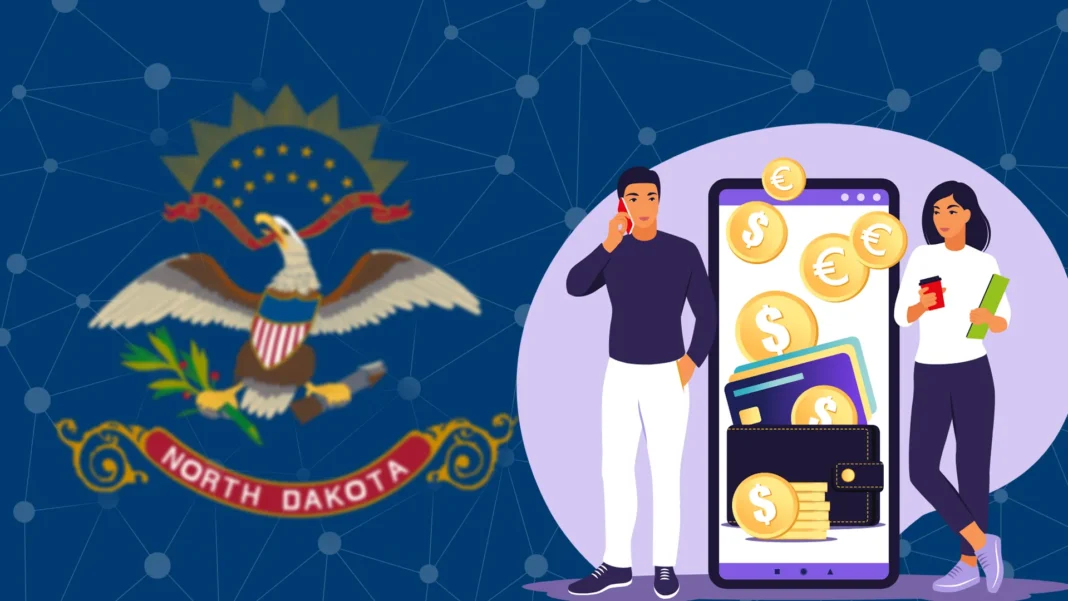- Users can access and store the academic credentials on any web-browsing device.
- The state of North Dakota is providing high school and college students with a blockchain-based digital wallet.
- This wallet will give students control of their credential certificates rather than the educational institutions, and it will also minimize the amount of paperwork required.
Implementation of Blockchain in Education
The North Dakota Education Portal was a platform that students and parents were already utilizing to monitor progress reports, report cards, and attendance records. Beginning with the academic year 2022-2023, high school students throughout the state were extended an invitation to build their own digital wallets via the North Dakota Education Portal.
According to Jeremy Fettig, a spokesman for North Dakota Information Technology (NDIT), the digital verifiable transcripts, diplomas, and other credentials, such as technical certifications, that users can view and save on any web-browsing device, contain links to the requirements and abilities covered in each course they completed. Users can access and store these credentials on any web-browsing device.
If students choose to utilize this digital wallet, they will be able to use a permissioned blockchain to deliver verifiable credentials to anybody who asks for them, such as a college or potential employer.
Working on the Blockchain
The Seattle-based company Evernym initially created the blockchain that the NDIT department uses, which ran as the Sovrin network. Evernym’s blockchain will be shut down by software giant Avast after it purchases it in December 2021, forcing NDIT to find a replacement by the autumn, according to Korsmo, who spoke to Blockworks.
The individual is not on the blockchain, which is how a self-sovereign blockchain operates. Their data isn’t on the blockchain either, he claimed. The only entity that will be on the blockchain is the organization or school that has the authority to issue the credentials on behalf of the student.
The student is then given a paired decentralized identifier. On-chain, it will demonstrate, for instance, that the institution granted that particular DID a diploma.
The employer during the job interview could have an application that creates a QR code if the candidate was a previous K-12 or college student. The learner would be able to communicate their selected credentials in a peer-to-peer exchange using that QR code, which would instantly confirm them.
As of right now, according to Korsmo, North Dakota, students may send an employer an invitation link that will lead them to the blockchain wallet, where they can check and download the shared credentials.
Blockchain will help North Dakota match talents
In order to start awarding cybersecurity degrees in the form of digital credentials, NDIT is also collaborating with community institutions. Similar certifications are also being sought after for EMTs, according to Korsmo.
The cybersecurity curriculum at Bismarck State College is divided into five stackable certifications. A user has an associate’s degree after they have earned three of them. If they complete all five, they will get a bachelor’s degree, according to Korsmo.
Each of those qualifications will be valuable, he said, making it such that even if a student leaves out but still has one or two certifications, they may still find work.
This concept is known as skills matching, and during the summer, the information technology department aims to further it by integrating digital wallets with its platform so it can actively send out messages about possible credentials that current and previous students might pursue.
This kind of thinking is not exclusive to North Dakota. Additionally, it is a member of an eight-state consortium run by the National Governors Association that is working to create verifiable, secure digital resumes that place more focus on an individual’s talents so that they may be matched to a position that best matches them.
These states include New Hampshire, Connecticut, Virginia, Indiana, Kentucky, Alabama, Arkansas, Oklahoma, Colorado, Wyoming, and Washington, in addition to North Dakota.
Universities, organizations, and businesses all across the globe have experimented with utilizing blockchain to validate credentials on a range of different networks, including Bitcoin-compatible implementations.


